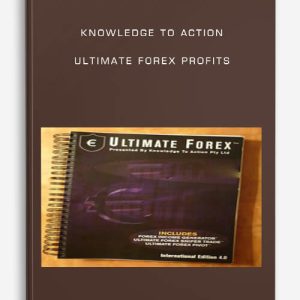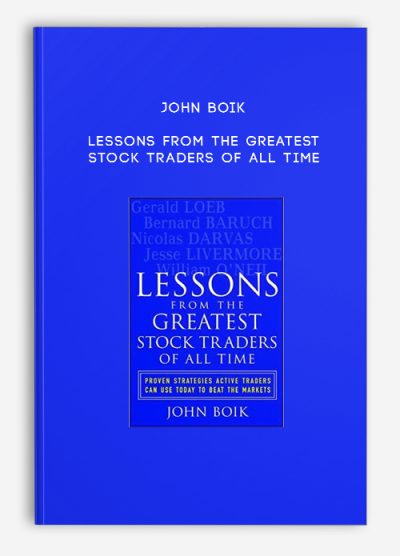John Boik – Lessons from the Greatest Stock Traders of all Time
$12.00
- Description
Description
John Boik – Lessons from the Greatest Stock Traders of all Time
The trading strategies of legends Jesse Livermore, Bernard Baruch, Gerald Loeb, and more provide ways to triumph in the market
Today’s bookshelves are so laden with Johnny-come-lately experts, eager to sell their knowledge to any and all, that it’s sometimes hard for traders to know which way to turn or whom to trust. Lessons from the Greatest Stock Traders of All Time makes the choice simple, examining the careers of five traders–Jesse Livermore, Bernard Baruch, Gerald Loeb, Nicolas Darvas, and Bill O’Neil–who, more than any others over the past century, demonstrated tremendous success at conquering Wall Street.
This technique-filled book presents numerous ways in which the timeless strategies of these investing icons can be used to tame today’s high-speed, unforgiving marketplaces. Comparing and contrasting the successes–and occasional failures–of these five giants of finance, it reveals:
- What Jesse Livermore did to correctly call every market break between 1917 and 1940
- How Bill O’Neil stuck to basics to create his famously effective CANSLIM system
- The strategies Nicolas Darvas used to become a self-made millionaire several times over
PRODUCT DESCRIPTION
FROM THE BACK COVER
Timeless rules for profitable, low-risk trading–from five investing legends
Over the course of a century, in every type of economy and market, five traders wrote and perfected the rules for successful stock trading. Lessons from the Greatest Stock Traders of All Time examines these amazing traders and their careers, and reveals how you can use their remarkably similar skills, disciplines, and trading rules to improve your performance in today’s high-risk, high-reward markets.
Look to these “Babe Ruths of Trading” to discover:
- Jesse Livermore–How early market defeats taught him the number one rule of profitable trading–Cut your losses and move on!
- Bernard Baruch–Techniques Baruch learned from his $5 a week Wall Street job–and how they helped him build a multimillion dollar portfolio
- Nicolas Darvas–What this “outsider” did to regularly outmaneuver Wall Street’s top pros in his spare time
- Gerald Loeb–What Loeb saw that many others missed, allowing him to sidestep the Crash of 1929
- William O’Neil–How O’Neil expanded on the time-honored rules of his predecessors to become a great modern-day success story
Certain rules and techniques have always distinguished the best traders. Discover what those strategies are, and how to use them to power your trading profits while dramatically cutting your losses, in the entertaining, technique-driven, and always fascinating Lessons from the Greatest Stock Traders of All Time.
ABOUT THE AUTHOR
John Boik is an active trader and former stockbroker. He is the former assistant controller and special finance project manager for Washington Mutual Finance. He lives in Atlanta.
Related Products
-
-96%
 Add to cartQuick View
Add to cartQuick View -
-65%
 Add to cartQuick View
Add to cartQuick View








